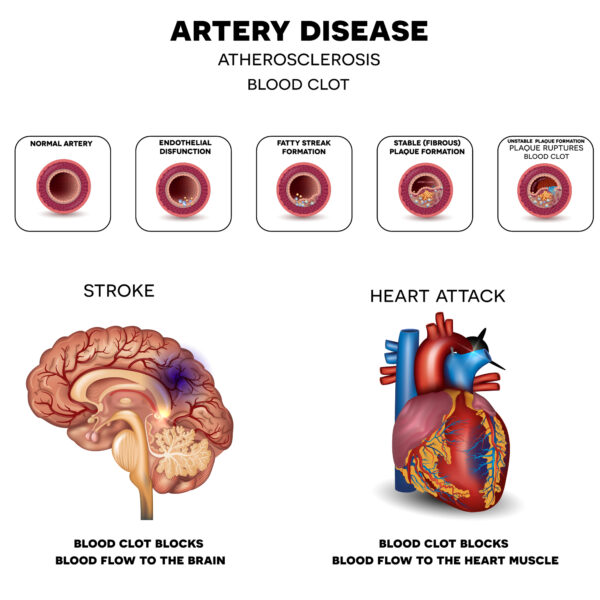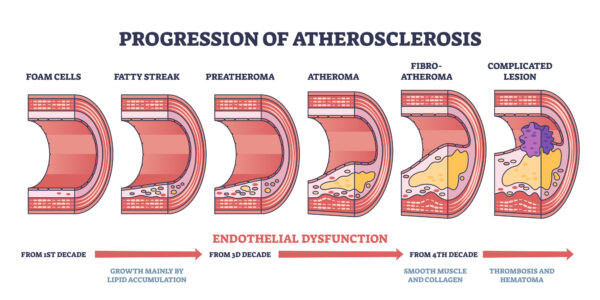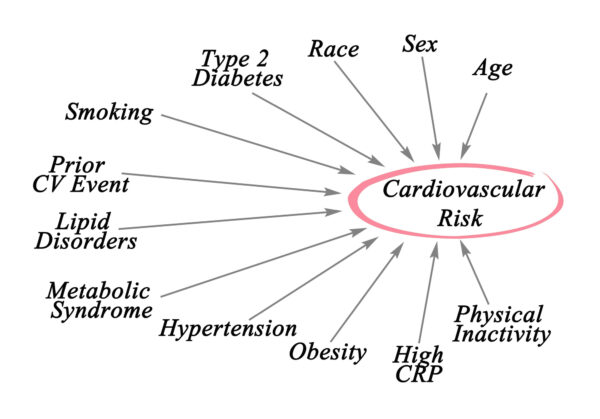Of all the preventive testing my patients have been doing lately with their PCPs, the Coronary Artery Calcium Score (CAC) seems to be creating the most confusion. This post is a summary of what I think is important for you to know about coronary artery calcium testing.
What is it?
Coronary artery calcium testing is a CT scan of the heart that quantifies the amount of calcium found in the coronary arteries. These arteries are important because they supply your heart muscle with blood and hence nutrients and oxygen. In a heart attack, one or multiple coronary arteries get acutely blocked and a portion of the heart is deprived of its blood supply.
What does it measure?
The calcium score measures the amount of calcified plaque, i.e. the plaque that is thought to be stable and not at risk of rupture. So, the calcium is a surrogate marker for risk of cardiovascular disease. It does not measure “soft plaque” which is uncalcified and is at risk for rupturing and causing blockages. As you can see from the diagram below, the “complicated lesion” to the far right shows plaque rupture, which is the cause of heart attacks and stroke.
What are the downsides of CAC testing?
- Exposure to ionizing radiation – CT scans, depending on the type of scan, all expose you to more radiation than x rays. On average this can be roughly 10-12 times as much radiation as a standard chest x ray.
- Excess worry – In a person who expected to have a low score and took the test and received a high score.
- Incidentaloma detection – an abnormal finding on the CT scan that then prompts additional imaging (radiation) and sometimes invasive procedures (biopsy) to rule out a malignancy.
- Cost – CAC testing is not usually covered by insurance and cost can be high depending on the testing site.
How are the results of CAC used?
- If you take the test and your coronary calcium score is zero, this means that you have a very low risk of heart attack/stroke.
- If you have a CAC score of zero, the “low risk” of zero only applies for certain periods of time and the test should be repeated at specific intervals depending on your other risk factors for cardiovascular disease:
– For low-risk people, the test should be repeated in 6-7 years.
– For intermediate risk people, test is repeated every 3-5 years.
– For high-risk people such as diabetics, repeat every 3 years.
- The number one use of the CAC test in general medicine and cardiology is to identify people who don’t need a statin to reduce cardiovascular risk. If your CAC score is zero, it also means that you would not likely benefit from statin use.[i]
Who shouldn’t get CAC testing?
- People already on a statin with a clear indication for that medication.
- People with established CVD (cardiovascular disease – such as prior heart attack/stroke).
- The young: males under 40 and females under 50 unless a strong family history of CVD or other risk factors are present.
- Older adults above 70-75 – coronary artery calcium increases with age.
Takeaway message
The main use of the coronary artery calcium score is as a decision support tool used to identify people who are at very low risk of heart attack or stroke (those with a score of zero) and hence less likely to benefit from a statin.
Sharon Goldberg is a Santa Fe based Integrative and Functional Medicine Physician who specializes in personalized preventive and wellness focused patient care. She is Board Certified in Internal Medicine since 2000 and has advanced training in Tropical Medicine and Hygiene. She has over two decades of practice experience working with both complex chronic illness and disease prevention. She is a medical educator, peer reviewer and coauthor of integrative and prevention related clinical research.
Sign Up for Updates
The information provided on this site www.drsharongoldberg.com is for informational purposes only. Dr. Sharon Goldberg and Glow Health, PA assume no responsibility and make no claims in treatment or cure of any disease or illness. The information provided by www.drsharongoldberg.com is not intended to substitute for medical advice from your physician or healthcare professional and is intended to support, not replace, the relationship that exists between a patient/site visitor and his/her physician. If you have/suspect you might have a health problem, you should consult your medical doctor. Supplements can interact with prescription medications. Be sure to consult with a healthcare professional before starting any diet, exercise, or supplement.
[i] https://www.sciencedirect.com/science/article/pii/S0735109718386960?via%3Dihub




